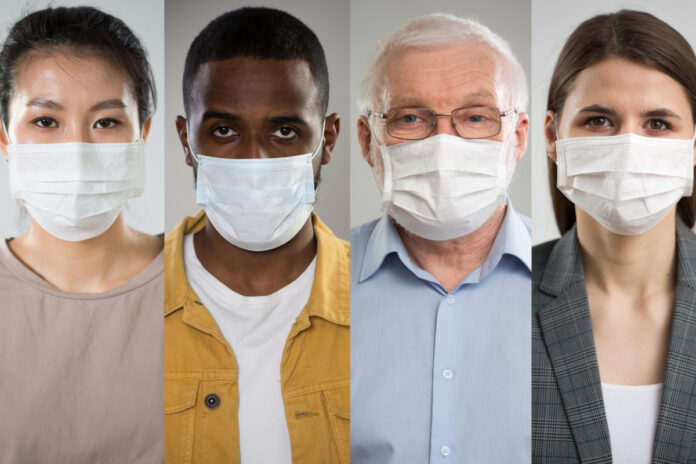NATIONWIDE – As summer turns to autumn, the U.S. is confronting natural disasters and crisis on several fronts, in addition to the ongoing COVID-19 pandemic.
With some consumer businesses still closed after six months, or open but subject to pandemic restrictions, many employees, business owners, and whole industries now must consider that social distancing restrictions may continue through the end of the year and beyond.
Chief science officer at the World Health Organization (WHO) Dr. Soumya Swaminathan and pandemic pundit Bill Gates both predict the world isn’t likely to “return to normal” until 2022.
The year 2020 seems destined to go down in infamy as the ultimate “annus horrilbilis,” as Queen Elizabeth once described 1992. After the past Labor Day weekend, traditionally the end of summer in the U.S., it is still unclear if schools will re-open, which businesses are allowed to resume operations, and whether the situation will worsen with the expected arrival of the regular flu season.
Black Lives Matter protests continue nationwide, as more incidents of police violence come under scrutiny in cities like Minneapolis, Portland, Los Angeles, and several others. In areas that normally would have thrived during the summer, the effects of social unrest on domestic travel and tourism have yet to be accessed—in addition to the already significant impact of the pandemic on the economy.
Climate change is said to be the cause of historic wildfires that erupted in California, Oregon, and Washington State the week before Labor Day and continue to ravage the West Coast, creating a thick blanket of smoke and hazardous air quality. “Even to climate scientists who study wildfires, whose key message is to get used to the unprecedented, this fire event has been shocking,” The Washington Post reported.
In Northern California, several wildfires have devastated hundreds of thousands of acres in counties that are well known for cannabis production. Affected counties include Plumas, Lassen, Butte, and Yuba (Bear and Claremont fires); Glenn, Mendocino, Lake, Tehama, and Trinity (August Complex fire); Napa, Sonoma, Solano, Lake, and Yolo (LNU Lightning Complex fire); and Santa Clara, Alameda, Contra Costa, San Joaquin, and Stanislaus (SCU Lightning Complex fire).
Cannabis industry businesses in most legal states continue to be considered essential services. Industry members and companies also continue to contribute to pandemic relief efforts.
With the U.S. presidential election in forty-eight days, cannabis community members are also busy on the political front, encouraging voting registration and participation.
The Cannabis Consumer Policy Council, in collaboration with Get Out the Vote (GOTV), launched its “Spark the Vote” campaign, which places voter registration stations at cannabis dispensaries as part of a pandemic-responsible voter registration campaign. Counterculture icon and cannabis entrepreneur Tommy Chong has endorsed the effort.
Spark the Vote will also present a Zoom webcast about election topics and strategies, on September 25, at 10:00am PDT.
A report issued by the U.S. Treasury said banking and financial services available to legal cannabis industry businesses have declined since the first quarter of 2020, prior to the beginning of the COVID-19 pandemic. The report cited cannabis business clients that were late in submitting required Suspicious Activity Report (SAR) filings.
“Short-term declines in the number of depository institutions actively providing banking services to marijuana-related businesses (MRBs) may be explained by filers exceeding the 90 day follow-on Suspicious Activity Report filing requirement. Several filers take 180 days or more to file a continuing activity report,” the Financial Crimes Enforcement Network Marijuana Baking Update said.
Stock market analysts, like Beth McKenna at The Motley Fool, said cannabis industry businesses have showed resilience despite the unprecedented conditions seen currently, and that increased industry growth could result in the long term.
The comments come before a House vote on the MORE Act, which if approved, would remove cannabis from its status as a Schedule I illegal substance. Congress is scheduled to vote on the proposed legislation on September 21.
Santa Barbara County, in California, reported a year-over-year increase in cannabis sales revenue, which analysts attributed in part to the COVID-19 crisis.
The county, which has received recent attention as the West Coast base for Prince Harry and Meghan Markle, revealed the information in a report to the Santa Barbara Board of Supervisors. Fiscal analysts Reese Ellestad and Steven Yee authored the report.
“Since the stay-at-home mandate was imposed, the cannabis industry has experienced a sharp increase in consumer demand at the retail level, which in turn impacts the supply chain, creating an increased demand for product supplied by growers,” the analysts said.
“Additionally, new operators are successfully navigating the county’s and state’s regulatory processes, and are therefore entering the market, thus generating new sales and new tax revenue,” the report continued.
In medical cannabis research, researchers at the University of South Carolina have reported study results that indicate THC, the cannabinoid compound that produces the “high” effect from cannabis, may be able to treat Acute Respiratory Distress Syndrome (ARDS), a serious medical condition, which often affects patients with advanced coronavirus. Study results were published in peer reviews Frontiers in Pharmacology, the British Journal of Pharmacology, and the International Journal of Molecular Sciences.
Automated vending manufacturer Greenstop introduced its self-serve cannabis vending machines in California. The company hopes the machines will increase consumer appeal, while also encouraging no-contact sales options for vendors and customers. Each kiosk can handle four customers at once and serves as a self-serve sales point for consumers who prefer a quick sale. The Smart Dispensary automated units are currently available in two California locations—Marina Caregivers in Marina Del Rey and The Healing Touch in Encino.












